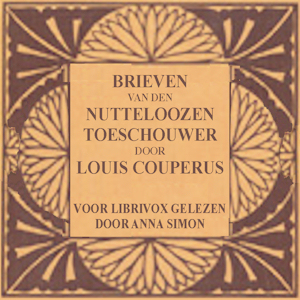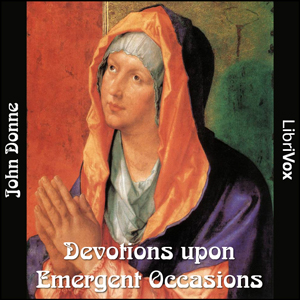
Voltaire was an atheist. Diderot was Enlightened. But trite titles seldom encompass completely the beliefs of any individual. And this one fact is certainly true when dealing with Sir Francis Bacon.The youngest son of Sir Nicholas Bacon, Francis was born in Strand, London, on Jan. 22, 1561. He went to Trinity College at Cambridge. He was elected to Parliament; he was Queen’s Counsel; he even became Attorney General before finally gaining the position of Lord Chancellor.But as do the careers of so many politicians, in 1621 his political career ended in disgrace.And yet, for all of this, both Diderot and Voltaire considered him “the father of modern science.” Others consider him only the father of the “scientific method.” (That process of collecting and organizing data.) Bacon’s “The Essays,” to which we now turn our attention, are–if they are nothing else–a delightful collection in decided disarray. That is, they seem to take no true progression. But an essay is not meant to be a treatise. And for all that, these essays are still a pleasure to read.Encompassing a broad field of interest, their largesse denotes the broad learning of this brilliant philosopher. It is therefore our sincere hope that the reader will, themselves, encompass these Essays. More importantly, we hope you enjoy them. (Summary by Carl Vonnoh, III)
14 episodes
Faith Hope and Charity ...... In the Language of Emerson these translate as: Self - Reliance, Love, and Friendship. (summary by Robert Scott)
7 episodes
Devotions upon Emergent Occasions is a 1624 prose work by the English writer John Donne. It is a series of reflections that were written as Donne recovered from a serious illness, believed to be either typhus or relapsing fever. (Donne does not clearly identify the disease in his text.) The work consists of twenty-three parts describing each stage of the sickness. Each part is further divided into a Meditation, an Expostulation, and a Prayer.The seventeenth meditation is perhaps the best-known part of the work. It contains the following passage:"No man is an island, entire of itself; every man is a piece of the continent, a part of the main. If a clod be washed away by the sea, Europe is the less, as well as if a promontory were, as well as if a manor of thy friend's or of thine own were: any man's death diminishes me, because I am involved in mankind, and therefore never send to know for whom the bell tolls; it tolls for thee." (Summary by Wikipedia)
24 episodes

Deze serie columns in de vorm van brieven schreef Couperus voor het dagblad Het Vaderland, vanuit Munchen en later vanuit Florence. Ze verschenen voor het eerst in druk in Het Vaderland van oktober tot december 1914.Vanaf 1912 bracht Louis Couperus de zomers door in een pension aan de Wittelsbacherplatz in Munchen. Daar was hij dan ook toen op 1 augustus 1914 Duitsland de oorlog verklaarde aan Rusland. In deze 'brieven' beschrijft hij zijn reactie op dit nieuws en het nieuws van de eerste dagen en weken van de Eerste Wereldoorlog.
In het begin spreekt er uit de tekst bijna een fascinatie voor de oorlog. Voor het schrijven van zijn historische romans had Couperus zich vaak verdiept in de geschiedenis - nu krijgt hij het gevoel zelf deel uit te maken van de geschiedenis. Hij verslindt alle kranten die hij te pakken kan krijgen, leest alle openbare telegrammen met oorlogsnieuws en houdt de ontwikkelingen bij met vlaggetjes op een oorlogskaart. "Ik wil mijn eigen tijd kennen".
Maar al snel komt de twijfel, het besef dat hij nooit een objectieve beschrijving, nooit de hele waarheid, te weten zal komen van de gebeurtenissen om hem heen. Zijn leven en denken raakt verlamd, hij komt nergens meer toe. Uiteindelijk probeert hij "de Wereldbrand" de rug toe te draaien.Geen online tekst beschikbaar (laatste check: juli 2013).
English: A series of newspaper columns in Dutch, written by well-known Dutch author Louis Couperus in 1914, during the first weeks of World War I. He describes his reflections on the current events.
10 episodes

This is not a children's book, as may be supposed from the title, but a collection of essays first published in The Idler magazine, in which over twenty well-known authors write with characteristic style and humour of their experiences in writing their first book... and getting it published.Authors include Jerome K. Jerome, R. L. Stevenson, Bret Harte, Rider Haggard, Rudyard Kipling, Conan Doyle and Mary Braddon. Full of charm, humour and pathos, this book is like a fireside chat with great writers of the past, as well as being a fascinating insight into the literary scene of the late 19th century.The listener is warned that a few of the authors give away the ending of their book, especially when they were pressurised into changing it by the publisher..Here are links to online texts of the works discussed, where available: Ready-Money Mortiboy;
The Family Scapegrace;
The Wreck of the ‘Grosvenor’;
Physiological Aesthetics;
Philistia;
The Shadow of a Crime;
Departmental Ditties;
The Trail of the Serpent;
The House of Elmore;
Dawn;
Hudson Bay;
The Premier and the Painter;
The Western Avernus;
A Life’s Atonement;
A Romance of Two Worlds;
On the Stage and Off;
Cavalry Life;
Dead Man’s Rock;
Undertones;
Idyls and Legends of Inverburn;
Treasure Island
(Summary by Ruth Golding)
23 episodes
Eureka is Poe's attempt at explaining the universe, using his general proposition "Because Nothing was, therefore All Things are". In it, Poe discusses man's relationship to God and the universe or, as he offers at the beginning: "I design to speak of the Physical, Metaphysical and Mathematical – of the Material and Spiritual Universe: of its Essence, its Origin, its Creation, its Present Condition and its Destiny". In keeping with this design, Poe concludes "that space and duration are one" and that matter and spirit are made of the same essence. - Summary by Wikipedia
9 episodes

This famous Shakespearean exploration illuminates its plays through the frame of character, while also weighing theme, mood, structure and poetics. In it, 19th-century critic William Hazlitt unveils Shakespeare's genius in creating and infusing characters with a life-likeness that often challenges, if not overshadows, more material human nature -- in both inner and outer worlds. As he writes: "The characters breathe, move, and live, ... think and speak and act just as they might do, if left entirely to themselves." The first printing sold out in weeks, and the second sold briskly, until a harsh and antagonistic appraisal in The Quarterly Review quelled sales altogether -- and unraveled Hazlitt's critical cachet in the eyes of the general public. Not until the mid-twentieth century were Hazlitt and his works re-evaluated, when he was finally recognized as one of Shakespeare's foremost critics of all time. In literary criticism, the renowned Harold Bloom ranks Hazlitt second only to Dr. Johnson. - Summary by Nemo
36 episodes






